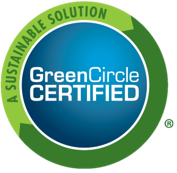The #1 Reason Audits Fail – And How to Prevent It
When a sustainability audit goes south, the culprit usually isn’t fraud, bad intent, or even poor environmental performance. It’s paperwork.
That’s right: audits often fail due to incomplete, inconsistent, or inaccessible documentation. Companies have the right processes in place but fail to provide evidence in the form auditors need. Sustainability certifications depend on proof. If your data is buried in outdated systems, scattered across teams, or missing key timestamps, you’re at risk, even if your practices are solid.
Here are a few frequent pitfalls:
Gaps in supplier data: You might trust your suppliers, but if you’re not verifying their claims, it could cost you.
Data access gaps: key data needed for verification is incomplete, inaccessible, or siloed across teams, delaying the audit process and limiting accuracy.
Version control issues: Teams may be using outdated SOPs or conflicting versions of reporting templates.
Internal confusion: When roles and responsibilities aren’t clearly defined, accountability slips through the cracks.
The good news? These are all fixable with the right systems and foresight.
GreenCircle’s Audit Readiness Assessment is built to catch these weak spots before they show up in front of a certifier. Think of it as a trial run that surfaces operational risks early so you can correct them with confidence.
Don’t wait for the audit to uncover problems. Join our pilot program and get ahead of the curve.
Written by Sara Risley, Certification Officer, GreenCircle Certified
About Sara
Sara brings over 15 years of experience in product certification and regulatory compliance. Before joining GreenCircle, she served as the Vice President of Certification at Green Seal, where she led the certification department for two years. Prior to that, she led NSF International's food product certification division, overseeing independent verification for food labels and packaging claims such as Organic and Non-GMO certifications. Additionally, she spent five years as the technical operations lead at NSF International, managing ANSI-accredited standards for commercial food equipment, food contact materials, and water filters.




